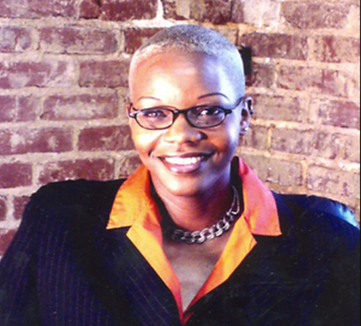June 22, 2023, 1:00pm-2:30pm EST
COURSE DESCRIPTION
This webinar will serve as a collaborative learning lab for participants. It will provide a brief review of the principles of a pilot program followed by a series of breakout discussions and exercises. These will include a logic model building exercise for a potential pilot program, case study discussions about establishing and expanding services, and a peer learning discussion opportunity to share best practices and lessons learned.
LEARNING OBJECTIVES
PRESENTERS
 Josh Esrick, MPP is the Chief of Training and Technical Assistance at Carnevale Associates, LLC. Mr. Esrick has over ten years of experience researching, writing, evaluating, and presenting on substance use prevention and other behavioral health topics. He is an expert in providing training and technical assistance (TTA) in substance use, having overseen the development of hundreds of TTA products for numerous clients, including six of SAMHSA’s ten regional Prevention Technology Transfer Centers (PTTCs), the PTTC Network Coordinating Office, the Central East Addiction Technology Transfer Center (ATTC) and Mental Health Technology Transfer Centers (MHTTC), and SAMHSA’s Center for the Application of Prevention Technologies (CAPT). These trainings and products have covered a wide range of topics, including strategic planning, data collection and analysis, and identifying evidence-based prevention interventions for youth. In addition to TTA, Mr. Esrick has directly provided many of these services to behavioral health agencies and other entities. He has published several academic journal articles. He holds a Bachelor of Arts in Political Science from the State University of New York at Buffalo and a Master of Public Policy from George Washington University.
Josh Esrick, MPP is the Chief of Training and Technical Assistance at Carnevale Associates, LLC. Mr. Esrick has over ten years of experience researching, writing, evaluating, and presenting on substance use prevention and other behavioral health topics. He is an expert in providing training and technical assistance (TTA) in substance use, having overseen the development of hundreds of TTA products for numerous clients, including six of SAMHSA’s ten regional Prevention Technology Transfer Centers (PTTCs), the PTTC Network Coordinating Office, the Central East Addiction Technology Transfer Center (ATTC) and Mental Health Technology Transfer Centers (MHTTC), and SAMHSA’s Center for the Application of Prevention Technologies (CAPT). These trainings and products have covered a wide range of topics, including strategic planning, data collection and analysis, and identifying evidence-based prevention interventions for youth. In addition to TTA, Mr. Esrick has directly provided many of these services to behavioral health agencies and other entities. He has published several academic journal articles. He holds a Bachelor of Arts in Political Science from the State University of New York at Buffalo and a Master of Public Policy from George Washington University.
 Princess Walker, MPHc, graduated with a dual degree in Psychology and Health Administration and Policy Program with a concentration in Public Health from the University of Maryland, Baltimore County. She is a results-oriented public health professional passionate about community health education, inequality, public health research, and eliminating health disparities. Specifically, she serves underprivileged communities to address health disparities in high-risk groups. She has worked extensively at both the community and state levels developing strategic prevention/behavioral healthcare plans and enforcing policies. Princess is proficient in qualitative and quantitative research and analysis, program/project management, and public health issues. Recognized for orchestrating work processes and instilling trust and confidence in stakeholders in education, private entities, government organizations, and participants that support public health objectives—currently advancing her degree as an MPH candidate with a concentration in Epidemiology. She hopes to advance community-level monitoring and evidence-based interventions and training to improve health outcomes produced by Substance used disorder and other communicable diseases.
Princess Walker, MPHc, graduated with a dual degree in Psychology and Health Administration and Policy Program with a concentration in Public Health from the University of Maryland, Baltimore County. She is a results-oriented public health professional passionate about community health education, inequality, public health research, and eliminating health disparities. Specifically, she serves underprivileged communities to address health disparities in high-risk groups. She has worked extensively at both the community and state levels developing strategic prevention/behavioral healthcare plans and enforcing policies. Princess is proficient in qualitative and quantitative research and analysis, program/project management, and public health issues. Recognized for orchestrating work processes and instilling trust and confidence in stakeholders in education, private entities, government organizations, and participants that support public health objectives—currently advancing her degree as an MPH candidate with a concentration in Epidemiology. She hopes to advance community-level monitoring and evidence-based interventions and training to improve health outcomes produced by Substance used disorder and other communicable diseases.

Zina Age, LMSW, MAC,a native of New Orleans, Louisiana and a graduate of Louisiana State University, holds a graduate degree in Social Work from Clark Atlanta University and a Masters in Addiction Counseling from the National Association of Forensic Counselors. Zina began working in the social services field in 1987, serving African American populations affected by HIV/AIDS and other health disparities. In 1996, she founded Aniz, Inc., which is dedicated to providing therapeutic education and support services for children and families from disadvantaged multicultural communities infected with and/or affected by HIV/AIDS. Ms. Age has served on many national and local committees dedicated to educating people about issues surrounding HIV and is a noted public speaker that has been invited to serve as a panelist, guest presenter and keynote speaker at various universities, conferences and forums in the U.S. and abroad.
She has delivered engaging presentations on topics such as, but not limited to: Undercover Community Mental Health and Substance Use Issues, HIV/AIDS Prevention and Risk Reduction Programs, Holistic Harm Reduction, the Inter-Generational spread of HIV/AIDS, Homophobia, Transphobia and Gender-phobia in the Black LGBT community, and Combating the “Secrecy, Shame and Guilt” surrounding HIV/AIDS issues.